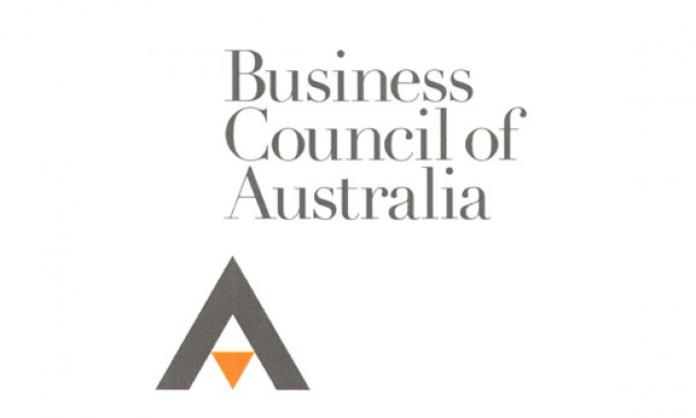Some readers of Red Flag may have become a little concerned about the Turnbull government’s priorities.
In this paper, you may have read that “[Turnbull’s] agenda is one of screwing the working class and rewarding the party’s big business backers” (27 February 2015); about his “track record favouring big business” (17 September 2015); that he has won “the backing of … big business” (27 September 2015); and that under Turnbull, “big business is getting its key want” (3 May 2016) in the form of massive corporate tax cuts.
A Turnbull government focused on the needs of big business? It may seem shocking. But rest assured. Big business is not some big scary bad guy, or a privileged elite of mammoth bureaucracies that reap billion-dollar profits through exploiting the weak.
In fact, we’re all in business. You’re in business, I’m in business, and if you’re against business, you’re against humanity. Just ask the Business Council of Australia.
“Who is business?” asked a philosophical Jennifer Westacott, head of the BCA, during an interview with Sky News. “It’s the 10 million people who work in business. If you’re anti-business, you’re anti-the 10 million people who work in business. You’re anti-superannuation holders.”
Westacott was complaining about the “anti-business” campaign of the Labor Party, which (for the moment) is opposing some of the proposed corporate tax cuts. If you oppose giving handouts to major capitalists, Westacott said, you oppose the “community” of people whom they exploit. For Westacott and those like her, to be anti-business is to be anti-human. Because if you oppose the bosses, they will ensure they spread the pain to their victims.
Can it be true? Are we all in business? Are corporate tax cuts actually good for us all? Well, no, not quite – and Jennifer Westacott knows it. In the same interview, she had a few complaints to make about Turnbull as well: that he has not been aggressive enough in dismantling the construction industry union, the CFMEU, which insists on organising workers in that industry to fight for higher wages and conditions.
Westacott seems deeply moved by her identification with the “10 million people who work in business” – when she’s using them as human shields. “Criticise my tax cuts, and my 10 million employees get it.”
But when those employees organise to improve their conditions at the expense of their bosses – it’s time to send in the Gestapo.
Westacott’s world view is part of an ancient and noble tradition – literally. Rulers and exploiters, for thousands of years, have warned that any attempt to restrict their god-given privileges will only cause pain to those they rule over.
In a more innocent age, the argument was straightforward. The social order is ordained by cosmic law. The ruling elite have the blessings of the universe. Kill the king, and some terrible curse will unfold: famine, plague or some other judgment of the gods. And if the gods are slow in making a judgment, public executions of disobedient rebels can be a speedy substitute.
Now, society is a little different. Our elites don’t claim to be put in place by mystical spiritual forces. Instead, they themselves are the god-like heroes, the “wealth creators”, whose place at the top is legitimised by the pronouncements of economists.
And we really do need them – for now. Westacott is right in that sense. She rightly points out, for example, that Australia’s privatised pension system means millions of working class Australians are made dependent on the wellbeing of big corporations to ensure that we don’t starve in our old age.
And those 10 million members of the “business community” do face poverty and misery if they don’t submit themselves to the whims and demands of a boss.
But Westacott also knows that “business” is not the same as its 10 million employees, that workers are the real “wealth creators”, and that big corporations depend on us for their existence, not the other way around. That’s why her call for brotherly love and understanding between the classes coincides with a vicious attack on the CFMEU. She wants her subjects to love their masters.
Westacott’s got a problem. She may be rich and powerful. She may be influential. But she represents a group of people – capitalists – who serve no great purpose in society, and whose disappearance would represent a step forward for humanity.
That’s her curse; it’s why she has to appeal to her 10 million victims to explain why she deserves to exist; and it’s why we need to build a real “anti-business agenda” that can end the rule of the parasites she represents.








